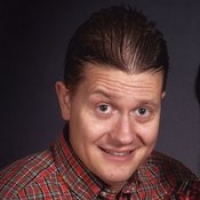Piano Sheet Music
 "Music has been my playmate, my lover, and my crying towel. " Buffy Sainte-Marie
"Music has been my playmate, my lover, and my crying towel. " Buffy Sainte-Marie
Ned Rorem
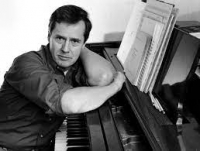
Ned Rorem (born October 23, 1923) is an American composer and diarist. He won a Pulitzer Prize for Music in 1976 for his Air Music: Ten Etudes for OrchestraRorem was born in Richmond, Indiana in 1923 as the son and second child of C. (Clarence) Rufus Rorem (1894-1988) and his wife, the former Gladys W. Miller, born in Illinois. They met and married in South Dakota in 1920, where Rufus Rorem was working for Goodyear Rubber. Ned Rorem had an older sister Rosemary.Their paternal grandfather, Ole John Rorem, was an immigrant from Norway; their paternal grandmother, the former Sinnie Thompson, was born in Iowa, as their father was.
Orange Blue
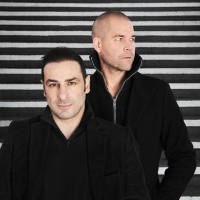
Orange Blue Musical group Active from: 1992 Record labels: Edel SE & Co. KGaA, EDEL, Orange Blue Bros. Records
Nominations: Echo Award for Best National Newcomer Songs She's got that light In Love With a Dream · 2000 Why Do I Feel So Sad on Christmas? Rock Christmas: The Very Best Of · 2000 Can Somebody Tell Me Who I Am In Love With a Dream · 2000
Nominations: Echo Award for Best National Newcomer Songs She's got that light In Love With a Dream · 2000 Why Do I Feel So Sad on Christmas? Rock Christmas: The Very Best Of · 2000 Can Somebody Tell Me Who I Am In Love With a Dream · 2000
Mark Stuart
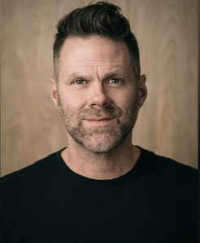
Mark Alan Stuart is an American missionary and former Christian rock musician, singer and songwriter best known as the lead vocalist for the Christian rock band Audio Adrenaline during their original run from 1986 to 2007.
J. S. Bach
Johann Sebastian Bach (21 March 1685, O.S.31 March 1685, N.S. – 28 July 1750, N.S.) was a German composer, organist, harpsichordist, violist, and violinist whose sacred and secular works for choir, orchestra, and solo instruments drew together the strands of the Baroque period and brought it to its ultimate maturity. Although he did not introduce new forms, he enriched the prevailing German style with a robust contrapuntal technique, an unrivalled control of harmonic and motivic organisation, and the adaptation of rhythms, forms and textures from abroad, particularly from Italy and France.
Revered for their intellectual depth, technical command and artistic beauty, Bach's works include the Brandenburg Concertos, the Goldberg Variations, the Partitas, The Well-Tempered Clavier, the Mass in B minor, the St Matthew Passion, the St John Passion, the Magnificat, A Musical Offering, The Art of Fugue, the English and French Suites, the Sonatas and Partitas for solo violin, the Cello Suites, more than 200 surviving cantatas, and a similar number of organ works, including the famous Toccata and Fugue in D minor and Passacaglia and Fugue in C minor, as well as the Great Eighteen Chorale Preludes and Organ Mass.
Bach's abilities as an organist were highly respected throughout Europe during his lifetime, although he was not widely recognised as a great composer until a revival of interest and performances of his music in the first half of the 19th century. He is now generally regarded as one of the main composers of the Baroque style, and as one of the greatest composers of all time.
Revered for their intellectual depth, technical command and artistic beauty, Bach's works include the Brandenburg Concertos, the Goldberg Variations, the Partitas, The Well-Tempered Clavier, the Mass in B minor, the St Matthew Passion, the St John Passion, the Magnificat, A Musical Offering, The Art of Fugue, the English and French Suites, the Sonatas and Partitas for solo violin, the Cello Suites, more than 200 surviving cantatas, and a similar number of organ works, including the famous Toccata and Fugue in D minor and Passacaglia and Fugue in C minor, as well as the Great Eighteen Chorale Preludes and Organ Mass.
Bach's abilities as an organist were highly respected throughout Europe during his lifetime, although he was not widely recognised as a great composer until a revival of interest and performances of his music in the first half of the 19th century. He is now generally regarded as one of the main composers of the Baroque style, and as one of the greatest composers of all time.
William McKinney
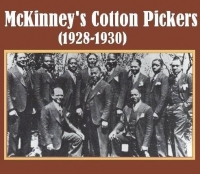
William McKinney (17 September 1895 – 14 October 1969) was an American jazz drummer who led a series of musical groups, most notably McKinney's Cotton Pickers.
William "Bill" McKinney was born in Cynthiana, Kentucky. He worked as a drummer in a circus band, then after serving in the United States Army in World War I settled in Springfield, Ohio where he took over leadership of the Synco Jazz Band. After hiring drummer Cuba Austin, McKinney worked as leader and business manager. After touring the U.S. Midwest, they got a residency at the Arcadia Ballroom in Detroit, Michigan in 1926. In Detroit they were heard by bandleader and music promoter Jean Goldkette, who arranged a more lucrative home base for the band in Detroit's Graystone Ballroom. The band was renamed McKinney's Cotton Pickers.
William "Bill" McKinney was born in Cynthiana, Kentucky. He worked as a drummer in a circus band, then after serving in the United States Army in World War I settled in Springfield, Ohio where he took over leadership of the Synco Jazz Band. After hiring drummer Cuba Austin, McKinney worked as leader and business manager. After touring the U.S. Midwest, they got a residency at the Arcadia Ballroom in Detroit, Michigan in 1926. In Detroit they were heard by bandleader and music promoter Jean Goldkette, who arranged a more lucrative home base for the band in Detroit's Graystone Ballroom. The band was renamed McKinney's Cotton Pickers.
Bill Frisell
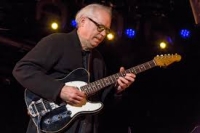
William Richard Frisell is an American guitarist, composer and arranger. One of the leading guitarists in jazz since the late 1980s, Frisell came to prominence as a stalwart for ECM Records.
Chopin

Frédéric Chopin (1 March 1810 – 17 October 1849) was a Polish composer and virtuoso pianist of the Romantic period. He is widely regarded as the greatest Polish composer, and ranks as one of music's greatest tone poets.
He was born in the village of Żelazowa Wola, in the Duchy of Warsaw, to a Polish mother and French-expatriate father, and in his early life was regarded as a child-prodigy pianist. In November 1830, at the age of 20, Chopin went abroad; following the suppression of the Polish November Uprising of 1830–31, he became one of many expatriates of the Polish "Great Emigration."
In Paris, he made a comfortable living as a composer and piano teacher, while giving few public performances. A Polish patriot,
Chopin's extant compositions were written primarily for the piano as a solo instrument. Though technically demanding, Chopin's style emphasizes nuance and expressive depth rather than virtuosity. Chopin invented musical forms such as the ballade and was responsible for major innovations in forms such as the piano sonata, waltz, nocturne, étude, impromptu and prelude. His works are mainstays of Romanticism in 19th-century classical music.
He was born in the village of Żelazowa Wola, in the Duchy of Warsaw, to a Polish mother and French-expatriate father, and in his early life was regarded as a child-prodigy pianist. In November 1830, at the age of 20, Chopin went abroad; following the suppression of the Polish November Uprising of 1830–31, he became one of many expatriates of the Polish "Great Emigration."
In Paris, he made a comfortable living as a composer and piano teacher, while giving few public performances. A Polish patriot,
Chopin's extant compositions were written primarily for the piano as a solo instrument. Though technically demanding, Chopin's style emphasizes nuance and expressive depth rather than virtuosity. Chopin invented musical forms such as the ballade and was responsible for major innovations in forms such as the piano sonata, waltz, nocturne, étude, impromptu and prelude. His works are mainstays of Romanticism in 19th-century classical music.
George Winston
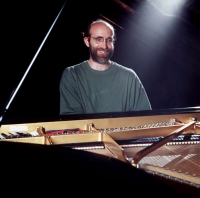
George Winston (born 1949) is an American pianist who was born in Michigan, and grew up in Miles City, Montana, and Mississippi. He is a graduate of Stetson University in Deland, Florida and lives in Santa Monica, California. Many of his pieces, self-described as "Rural Folk Piano", evoke the essence of a season and reflect natural landscapes. He performs in the new age genre. He also is known for his tribute album of Vince Guaraldi's compositions for the Peanuts animations.
Paulo cesar maia de Aguiar
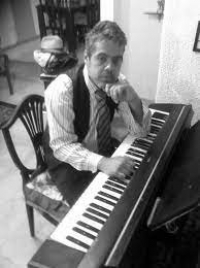
Paulo cesar maia de Aguiar the artist, the composer, playwrite, arranger to: musician, painting, jornalism, and consultants and photografe Also Chamber music or different musical ...
Traditional

Joss Whedon
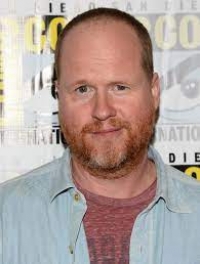
Joseph Hill Whedon (/ˈwiːdən/; born June 23, 1964) is an American film director, producer, writer, and composer. He is the founder of Mutant Enemy Productions, co-founder of Bellwether Pictures, and is best known as the creator of several television series. These include Buffy the Vampire Slayer (1997–2003), Angel (1999–2004), Firefly (2002), Dollhouse (2009–2010), and Agents of S.H.I.E.L.D. (2013–2020).
Queen

Queen were an English rock band formed in 1970 in London by guitarist Brian May, lead vocalist Freddie Mercury, and drummer Roger Taylor, with bass guitarist John Deacon completing the lineup the following year. While it is uncertain how many albums the band has sold, estimations range from 130 million to over 300 million albums worldwide.
The band is noted for their musical diversity, multi-layered arrangements, vocal harmonies, and incorporation of audience participation into their live performances. Their 1985 Live Aid performance was voted the best live rock performance of all time in an industry poll.
Queen had moderate success in the early 1970s, with the albums Queen and Queen II, but it was with the release of Sheer Heart Attack in 1974 and A Night at the Opera the following year that the band gained international success. They have released fifteen studio albums, five live albums, and numerous compilation albums. Eighteen of these have reached number one on charts around the world.
Following Mercury's death in 1991 and Deacon's retirement later in the decade, May and Taylor have performed infrequently under the Queen name. Since 2005 they have been collaborating with Paul Rodgers, under the moniker Queen + Paul Rodgers.
The band is noted for their musical diversity, multi-layered arrangements, vocal harmonies, and incorporation of audience participation into their live performances. Their 1985 Live Aid performance was voted the best live rock performance of all time in an industry poll.
Queen had moderate success in the early 1970s, with the albums Queen and Queen II, but it was with the release of Sheer Heart Attack in 1974 and A Night at the Opera the following year that the band gained international success. They have released fifteen studio albums, five live albums, and numerous compilation albums. Eighteen of these have reached number one on charts around the world.
Following Mercury's death in 1991 and Deacon's retirement later in the decade, May and Taylor have performed infrequently under the Queen name. Since 2005 they have been collaborating with Paul Rodgers, under the moniker Queen + Paul Rodgers.
John Williams

John Towner Williams (born February 8, 1932) is an American composer, conductor, and pianist. In a career that spans six decades, Williams has composed many of the most famous film scores in Hollywood history, including Star Wars, Superman, Home Alone, the first three Harry Potter movies and all but two of Steven Spielberg's feature films including the Indiana Jones series, Schindler's List, E.T. the Extra-Terrestrial, Jurassic Park and Jaws. He also composed the soundtrack for the hit 1960s television series Lost in Space as well as the fanfare of the DreamWorks Pictures' logo.
Williams has composed theme music for four Olympic Games, the NBC Nightly News, the rededication of the Statue of Liberty, and numerous television series and concert pieces. He served as the principal conductor of the Boston Pops Orchestra from 1980 to 1993, and is now the orchestra's laureate conductor.
Williams is a five-time winner of the Academy Award. He has also won four Golden Globe Awards, seven BAFTA Awards and 21 Grammy Awards. With 45 Academy Award nominations, Williams is, together with composer Alfred Newman, the second most nominated person after Walt Disney. He was inducted into the Hollywood Bowl Hall of Fame in 2000, and was a recipient of the Kennedy Center Honors in 2004.
Williams has composed theme music for four Olympic Games, the NBC Nightly News, the rededication of the Statue of Liberty, and numerous television series and concert pieces. He served as the principal conductor of the Boston Pops Orchestra from 1980 to 1993, and is now the orchestra's laureate conductor.
Williams is a five-time winner of the Academy Award. He has also won four Golden Globe Awards, seven BAFTA Awards and 21 Grammy Awards. With 45 Academy Award nominations, Williams is, together with composer Alfred Newman, the second most nominated person after Walt Disney. He was inducted into the Hollywood Bowl Hall of Fame in 2000, and was a recipient of the Kennedy Center Honors in 2004.
Frank Sinatra

Francis Albert "Frank" Sinatra (December 12, 1915 â May 14, 1998) was an American singer and actor.
Beginning his musical career in the swing era with Harry James and Tommy Dorsey, Sinatra became a solo artist with great success in the early to mid-1940s, being the idol of the "bobby soxers". His professional career had stalled by the 1950s, but it was reborn in 1954 after he won the Academy Award for Best Supporting Actor.
He signed with Capitol Records and released several critically lauded albums (such as In the Wee Small Hours, Songs for Swingin' Lovers, Come Fly with Me, Only the Lonely and Nice 'n' Easy). Sinatra left Capitol to found his own record label, Reprise Records (finding success with albums such as Ring-A-Ding-Ding, Sinatra at the Sands and Francis Albert Sinatra & Antonio Carlos Jobim), toured internationally, and fraternized with the Rat Pack and President John F. Kennedy in the early 1960s. Sinatra turned 50 in 1965, recorded the retrospective September of My Years, starred in the Emmy-winning television special Frank Sinatra: A Man and His Music, and scored hits with "Strangers in the Night" and "My Way".
Sinatra attempted to weather the changing tastes in popular music, but with dwindling album sales and after appearing in several poorly received films, he retired in 1971. Coming out of retirement in 1973, he recorded several albums, scoring a hit with "(Theme From) New York, New York" in 1980, and toured both within the United States and internationally until a few years before his death in 1998.
Sinatra also forged a career as a dramatic actor, winning the Academy Award for Best Supporting Actor for his performance in From Here to Eternity, and he was nominated for the Academy Award for Best Actor for The Man with the Golden Arm. His also starred in such musicals as High Society, Pal Joey, Guys and Dolls and On the Town. Sinatra was honored with the Kennedy Center Honors in 1983 and awarded the Presidential Medal of Freedom by Ronald Reagan in 1985 and the Congressional Gold Medal in 1997. Sinatra was also the recipient of eleven Grammy Awards, including the Grammy Trustees Award, Grammy Legend Award and the Grammy Lifetime Achievement Award.
Beginning his musical career in the swing era with Harry James and Tommy Dorsey, Sinatra became a solo artist with great success in the early to mid-1940s, being the idol of the "bobby soxers". His professional career had stalled by the 1950s, but it was reborn in 1954 after he won the Academy Award for Best Supporting Actor.
He signed with Capitol Records and released several critically lauded albums (such as In the Wee Small Hours, Songs for Swingin' Lovers, Come Fly with Me, Only the Lonely and Nice 'n' Easy). Sinatra left Capitol to found his own record label, Reprise Records (finding success with albums such as Ring-A-Ding-Ding, Sinatra at the Sands and Francis Albert Sinatra & Antonio Carlos Jobim), toured internationally, and fraternized with the Rat Pack and President John F. Kennedy in the early 1960s. Sinatra turned 50 in 1965, recorded the retrospective September of My Years, starred in the Emmy-winning television special Frank Sinatra: A Man and His Music, and scored hits with "Strangers in the Night" and "My Way".
Sinatra attempted to weather the changing tastes in popular music, but with dwindling album sales and after appearing in several poorly received films, he retired in 1971. Coming out of retirement in 1973, he recorded several albums, scoring a hit with "(Theme From) New York, New York" in 1980, and toured both within the United States and internationally until a few years before his death in 1998.
Sinatra also forged a career as a dramatic actor, winning the Academy Award for Best Supporting Actor for his performance in From Here to Eternity, and he was nominated for the Academy Award for Best Actor for The Man with the Golden Arm. His also starred in such musicals as High Society, Pal Joey, Guys and Dolls and On the Town. Sinatra was honored with the Kennedy Center Honors in 1983 and awarded the Presidential Medal of Freedom by Ronald Reagan in 1985 and the Congressional Gold Medal in 1997. Sinatra was also the recipient of eleven Grammy Awards, including the Grammy Trustees Award, Grammy Legend Award and the Grammy Lifetime Achievement Award.
Nier
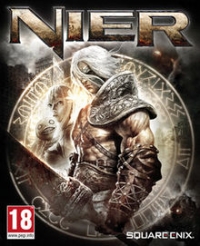
Nier is an action role-playing video game developed by Cavia and published by Square Enix for the PlayStation 3 and Xbox 360 in April 2010. In Japan, the game was released as Nier Replicant for the PlayStation 3 with a younger main character, while an alternative version titled Nier Gestalt with an older main character was released for the Xbox 360; Gestalt was released outside of Japan as Nier for both platforms. Nier Replicant ver.1.22474487139... is a remaster of the game, released for PlayStation 4, Xbox One, and Windows on April 23, 2021.
Tod.B.Galloway
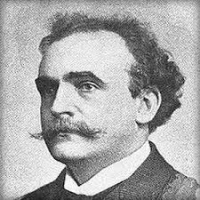
Composer and songwriter ("The Whiffenpoof Song"), educated at Amherst College (BA, MA). He was a probate judge, then a secretary to the governor of Ohio. During World War I, he was a YMCA entertainer in France. Joining ASCAP in 1933, his other popular-song compositions include "Little Boy Blue", "O Heart of Mine", "The Gypsy Trail", "When Spring
Jesper Eg Pedersen
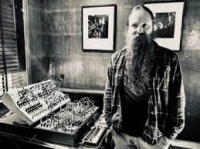
Composer, sound artist, performer and educator residing in Reykjavik Iceland. He's made music for various musicians and ensembles that in term have ...
W.A. Mozart

Wolfgang Amadeus Mozart (German: , full baptismal name Johannes Chrysostomus Wolfgangus Theophilus Mozart (27 January 1756 – 5 December 1791), was a prolific and influential composer of the Classical era. He composed over 600 works, many acknowledged as pinnacles of symphonic, concertante, chamber, piano, operatic, and choral music. He is among the most enduringly popular of classical composers.
Mozart showed prodigious ability from his earliest childhood in Salzburg. Already competent on keyboard and violin, he composed from the age of five and performed before European royalty; at 17 he was engaged as a court musician in Salzburg, but grew restless and traveled in search of a better position, always composing abundantly. While visiting Vienna in 1781, he was dismissed from his Salzburg position. He chose to stay in the capital, where he achieved fame but little financial security. During his final years in Vienna, he composed many of his best-known symphonies, concertos, and operas, and the Requiem. The circumstances of his early death have been much mythologized. He was survived by his wife Constanze and two sons.
Mozart learned voraciously from others, and developed a brilliance and maturity of style that encompassed the light and graceful along with the dark and passionate—the whole informed by a vision of humanity "redeemed through art, forgiven, and reconciled with nature and the absolute." His influence on subsequent Western art music is profound. Beethoven wrote his own early compositions in the shadow of Mozart, of whom Joseph Haydn wrote that "posterity will not see such a talent again in 100 years."
Mozart showed prodigious ability from his earliest childhood in Salzburg. Already competent on keyboard and violin, he composed from the age of five and performed before European royalty; at 17 he was engaged as a court musician in Salzburg, but grew restless and traveled in search of a better position, always composing abundantly. While visiting Vienna in 1781, he was dismissed from his Salzburg position. He chose to stay in the capital, where he achieved fame but little financial security. During his final years in Vienna, he composed many of his best-known symphonies, concertos, and operas, and the Requiem. The circumstances of his early death have been much mythologized. He was survived by his wife Constanze and two sons.
Mozart learned voraciously from others, and developed a brilliance and maturity of style that encompassed the light and graceful along with the dark and passionate—the whole informed by a vision of humanity "redeemed through art, forgiven, and reconciled with nature and the absolute." His influence on subsequent Western art music is profound. Beethoven wrote his own early compositions in the shadow of Mozart, of whom Joseph Haydn wrote that "posterity will not see such a talent again in 100 years."
Alfred Schnittke

Alfred Garrievich Schnittke was a Soviet and German composer. Schnittke's early music shows the strong influence of Dmitri Shostakovich. He developed a polystylistic technique in works such as the epic Symphony No. 1 and his first concerto grosso. Wikipedia Born: November 24, 1934, Engels, Russia Died: August 3, 1998, Hamburg, Germany
Place of burial: Novodevichy Cemetery, Moscow, Russia Spouse: Irina Schnittke (m. 1961–1998), Galina Koltsina (m. 1956–1958)
Place of burial: Novodevichy Cemetery, Moscow, Russia Spouse: Irina Schnittke (m. 1961–1998), Galina Koltsina (m. 1956–1958)
Dirty Dancing
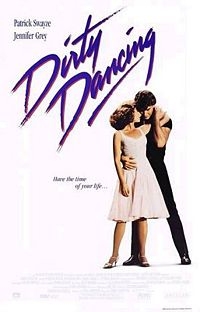
Dirty Dancing is a 1987 romance film. Written by Eleanor Bergstein, the film features Jennifer Grey, Patrick Swayze, Cynthia Rhodes, and Jerry Orbach. The story details the moment of time that a teenaged girl crosses over into womanhood both physically and emotionally, through a relationship with a dance instructor during a family summer vacation. Around a third of the movie involves dancing scenes choreographed by Kenny Ortega (later famous for High School Musical), and the finale has been described as "the most goosebump-inducing dance scene in movie history".
Originally a low-budget film by a new studio and with no major stars (at the time), Dirty Dancing became a massive box office hit. As of 2007, it has earned $300 million worldwide. It was the first film to sell over a million copies on home video, and the Dirty Dancing soundtrack generated two multi-platinum albums and multiple singles, including "(I've Had) The Time of My Life", which won both the Golden Globe and Academy Award for Best Original Song, and a Grammy Award for best duet. The film spawned a 2004 sequel, Dirty Dancing: Havana Nights, as well as a stage version which has had sellout performances in Australia, Europe, and North America, with plans to open on Broadway.
Originally a low-budget film by a new studio and with no major stars (at the time), Dirty Dancing became a massive box office hit. As of 2007, it has earned $300 million worldwide. It was the first film to sell over a million copies on home video, and the Dirty Dancing soundtrack generated two multi-platinum albums and multiple singles, including "(I've Had) The Time of My Life", which won both the Golden Globe and Academy Award for Best Original Song, and a Grammy Award for best duet. The film spawned a 2004 sequel, Dirty Dancing: Havana Nights, as well as a stage version which has had sellout performances in Australia, Europe, and North America, with plans to open on Broadway.
Vocaloid

Vocaloid (ボーカロイド, Bōkaroido) is a singing voice synthesizer software product. Its signal processing part was developed through a joint research project led by Kenmochi Hideki at the Pompeu Fabra University in Barcelona, Spain, in 2000 and was not originally intended to be a full commercial project. Backed by the Yamaha Corporation, it developed the software into the commercial product "Vocaloid" that was released in 2004.
Creedence Clearwater Revival
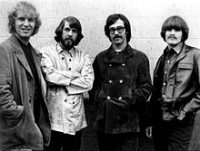
Creedence Clearwater Revival, also referred to as Creedence and CCR, was an American rock band that recorded and performed from 1959 to 1972 under various names before settling on the Creedence Clearwater Revival name in 1967. The band initially consisted of lead vocalist, lead guitarist, and primary songwriter John Fogerty; his brother, rhythm guitarist Tom Fogerty; bassist Stu Cook; and drummer Doug Clifford. These members had played together since 1959, first as the Blue Velvets and later as the Golliwogs.
Brenda Lee
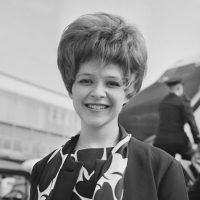
Brenda Mae Tarpley, known professionally as Brenda Lee, is an American singer. Performing rockabilly, pop and country music, she had 47 US chart hits during the 1960s and is ranked fourth in that decade, surpassed only by Elvis Presley, the Beatles and Ray Charles.
To Vu
Polish of Vietnamese descent composer and pianist, Ania To Vu (née Vũ Đặng Minh Anh) writes music that explores the interplay between the sound properties of ...
Henry Smith
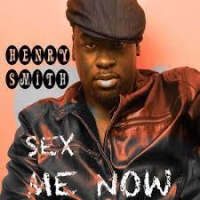
Henry Smith Musical artist Albums: Violin & Piano Instrumentals, Piano Relaxation, MORE Genre: Dance/Electronic, Pop
Record labels: Columbia Records, Filtr, ECMD, ALVIA RECORDS Songs Give Thanks Acoustic Worship · 1995
SEX ME NOW Date Nght - EP · 2014 Breng Dank aan De Eeuwige Over Liefde gesproken · 2004
Record labels: Columbia Records, Filtr, ECMD, ALVIA RECORDS Songs Give Thanks Acoustic Worship · 1995
SEX ME NOW Date Nght - EP · 2014 Breng Dank aan De Eeuwige Over Liefde gesproken · 2004
Mia Martini
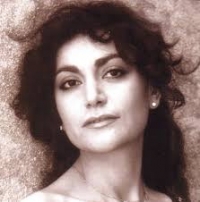
Mia Martini (Italian pronunciation: ; born Domenica Bertè ; 20 September 1947 – 12 May 1995) was an Italian singer.
Stephen Flaherty
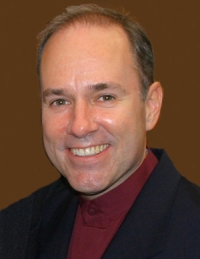
Stephen Flaherty (born September 18, 1960) is an American composer of musical theatre. He works most often in collaboration with the lyricist/bookwriter Lynn Ahrens. They are best known for writing the Broadway shows Once on This Island, which was nominated for eight Tony Awards, Seussical , which was nominated for the Grammy Award and Ragtime, which was nominated for twelve Tony Awards and won Best Original Score. Flaherty was also nominated for two Academy Awards and two Golden Globe Awards with Lynn Ahrens for his songs and song score for the animated film musical Anastasia.
John Patitucci
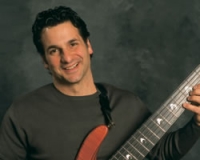
John Patitucci (born December 22, 1959) is an American jazz double bass and jazz fusion electric bass player.
Silverchair
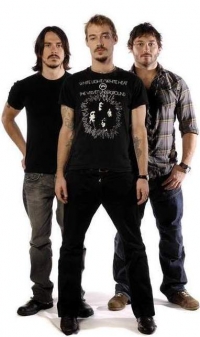
Silverchair is an Australian alternative rock band. The band formed as Innocent Criminals in Newcastle, New South Wales, in 1992, with their current lineup of vocalist and guitarist Daniel Johns, bass guitarist Chris Joannou, and drummer Ben Gillies. Silverchair have been highly successful in the Australian recording industry, receiving the industry's flagship awards, the ARIA Awards, a record 20 times. The band has also received six APRA Awards.
Silverchair found early success when one of their first songs, "Tomorrow", won a local music competition run by Australian television network SBS. The band were soon signed by Murmur, and were successful on the Australian and international rock stages. In 2003, following the release of Diorama, the band announced a hiatus, during which time members recorded with side projects The Dissociatives, The Mess Hall, and Tambalane. Silverchair were reunited at the 2005 Wave Aid concerts, and went on to release Young Modern and play the Across the Great Divide tour with Powderfinger.
Silverchair's sound has evolved throughout their career, differing sounds on specific albums steadily growing more ambitious over the years, from grunge/post-grunge on their debut to their more recent orchestral prog-infused chamber-pop. The songwriting of Daniel Johns has been noted as improving steadily, while the band has developed an increased element of complexity in later works.
Silverchair found early success when one of their first songs, "Tomorrow", won a local music competition run by Australian television network SBS. The band were soon signed by Murmur, and were successful on the Australian and international rock stages. In 2003, following the release of Diorama, the band announced a hiatus, during which time members recorded with side projects The Dissociatives, The Mess Hall, and Tambalane. Silverchair were reunited at the 2005 Wave Aid concerts, and went on to release Young Modern and play the Across the Great Divide tour with Powderfinger.
Silverchair's sound has evolved throughout their career, differing sounds on specific albums steadily growing more ambitious over the years, from grunge/post-grunge on their debut to their more recent orchestral prog-infused chamber-pop. The songwriting of Daniel Johns has been noted as improving steadily, while the band has developed an increased element of complexity in later works.
Paganini

Niccolò Paganini (27 October 1782 – 27 May 1840) was an Italian violinist, violist, guitarist, and composer. He was one of the most celebrated violin virtuosi of his time, and left his mark as one of the pillars of modern violin technique. His caprice in A minor, Op. 1 No. 24 is among his best known of compositions, and serves as inspiration for many prominent artists.
Paganini composed his own works to play exclusively in his concerts, all of which had profound influences on the evolution of violin techniques. His 24 Caprices were probably composed in the period between 1805 to 1809, while he was in the service of the Baciocchi court. Also during this period, he composed the majority of the solo pieces, duo-sonatas,trios and quartets for the guitar. These chamber works may have been inspired by the publication, in Lucca, of the guitar quintets of Boccherini. Many of his variations (and he has become the de facto master of this musical genre), including Le Streghe, The Carnival of Venice, and Nel cor più non mi sento, were composed, or at least first performed, before his European concert tour.
Playbill of Paganini's concert at the Covent Garden in 1832. Note that all solo pieces were of his composition, which was typical of all his concerts.
Generally speaking, Paganini's compositions were technically imaginative, and the timbre of the instrument was greatly expanded as a result of these works. Sounds of different musical instruments and animals were often imitated. One such composition was titled Il Fandango Spanolo (The Spanish Dance), which featured a series of humorous imitations of farm animals. Even more outrageous was a solo piece Duetto Amoroso, in which the sighs and groans of lovers were intimately depicted on the violin. Fortunately there survives a manuscript of the Duetto which has been recorded, while the existence of the Fandango is known only through concert posters.
However, his works were criticized for lacking characteristics of true polyphonism, as pointed out by Eugène Ysaÿe. Yehudi Menuhin, on the other hand, suggested that this might have been the result of his reliance on the guitar (in lieu of the piano) as an aid in composition. The orchestral parts for his concertos were often polite, unadventurous, and clearly supportive of the soloist. In this, his style is consistent with that of other Italian composers such as Paisiello, Rossini and Donizetti, who were influenced by the guitar-song milieu of Naples during this period.
Paganini was also the inspiration of many prominent composers. Both "La Campanella" and the A minor caprice (Nr. 24) have been an object of interest for a number of composers. Franz Liszt, Johannes Brahms, Sergei Rachmaninoff, Boris Blacher, Andrew Lloyd Webber, George Rochberg and Witold Lutosławski, among others, wrote well-known variations on these themes.
Paganini composed his own works to play exclusively in his concerts, all of which had profound influences on the evolution of violin techniques. His 24 Caprices were probably composed in the period between 1805 to 1809, while he was in the service of the Baciocchi court. Also during this period, he composed the majority of the solo pieces, duo-sonatas,trios and quartets for the guitar. These chamber works may have been inspired by the publication, in Lucca, of the guitar quintets of Boccherini. Many of his variations (and he has become the de facto master of this musical genre), including Le Streghe, The Carnival of Venice, and Nel cor più non mi sento, were composed, or at least first performed, before his European concert tour.
Playbill of Paganini's concert at the Covent Garden in 1832. Note that all solo pieces were of his composition, which was typical of all his concerts.
Generally speaking, Paganini's compositions were technically imaginative, and the timbre of the instrument was greatly expanded as a result of these works. Sounds of different musical instruments and animals were often imitated. One such composition was titled Il Fandango Spanolo (The Spanish Dance), which featured a series of humorous imitations of farm animals. Even more outrageous was a solo piece Duetto Amoroso, in which the sighs and groans of lovers were intimately depicted on the violin. Fortunately there survives a manuscript of the Duetto which has been recorded, while the existence of the Fandango is known only through concert posters.
However, his works were criticized for lacking characteristics of true polyphonism, as pointed out by Eugène Ysaÿe. Yehudi Menuhin, on the other hand, suggested that this might have been the result of his reliance on the guitar (in lieu of the piano) as an aid in composition. The orchestral parts for his concertos were often polite, unadventurous, and clearly supportive of the soloist. In this, his style is consistent with that of other Italian composers such as Paisiello, Rossini and Donizetti, who were influenced by the guitar-song milieu of Naples during this period.
Paganini was also the inspiration of many prominent composers. Both "La Campanella" and the A minor caprice (Nr. 24) have been an object of interest for a number of composers. Franz Liszt, Johannes Brahms, Sergei Rachmaninoff, Boris Blacher, Andrew Lloyd Webber, George Rochberg and Witold Lutosławski, among others, wrote well-known variations on these themes.
Riccardo Cocciante
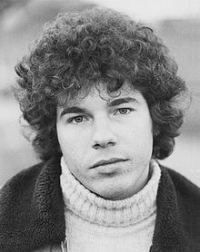
Riccardo Cocciante , also known in French-speaking countries and the U.S. as Richard Cocciante (born 20 February 1946), is an Italian singer, composer, theatre man and musician
His oeuvre includes recordings in Italian, French, English, and Spanish; he has recorded some of his songs in all four languages.
Cocciante was born in Saigon, French Indochina, now Ho Chi Minh City, Vietnam, to an Italian father and a French mother. He moved to Rome, Italy at the age of 11 where he attended school and started his career as musician coming to success around 1972. He also lived in the USA and Ireland. In 1976, Cocciante covered the Beatles song "Michelle" for the musical documentary All This and World War II. That same year, he released his sole English album in the US, with the single "When Love Has Gone Away" peaking at #41 on the Billboard Hot 100.
In 1991, he won the Sanremo Festival with the song "Se stiamo insieme", and for Christmas 1997 legendary Spanish operatic tenor and friend Plácido Domingo invited him to sing at Domingo's annual Christmas in Vienna concert, together with Sarah Brightman and Helmut Lotti.
As of 2008, Cocciante has three musicals running, probably Notre-Dame de Paris being the most known. This musical may later be put into competition against another musical in progress, Disney's Hunchback of Notre Dame (musical).
His oeuvre includes recordings in Italian, French, English, and Spanish; he has recorded some of his songs in all four languages.
Cocciante was born in Saigon, French Indochina, now Ho Chi Minh City, Vietnam, to an Italian father and a French mother. He moved to Rome, Italy at the age of 11 where he attended school and started his career as musician coming to success around 1972. He also lived in the USA and Ireland. In 1976, Cocciante covered the Beatles song "Michelle" for the musical documentary All This and World War II. That same year, he released his sole English album in the US, with the single "When Love Has Gone Away" peaking at #41 on the Billboard Hot 100.
In 1991, he won the Sanremo Festival with the song "Se stiamo insieme", and for Christmas 1997 legendary Spanish operatic tenor and friend Plácido Domingo invited him to sing at Domingo's annual Christmas in Vienna concert, together with Sarah Brightman and Helmut Lotti.
As of 2008, Cocciante has three musicals running, probably Notre-Dame de Paris being the most known. This musical may later be put into competition against another musical in progress, Disney's Hunchback of Notre Dame (musical).
Elton John

Sir Elton Hercules John CBE (born Reginald Kenneth Dwight on 25 March 1947) is an English pop/rock singer, composer and pianist.
In his four-decade career, John has been one of the dominant forces in rock and popular music, especially during the 1970s. He has sold over 200 million records, making him one of the most successful artists of all time. He has more than 50 Top 40 hits including seven consecutive No. 1 U.S. albums, 59 Top 40 singles, 16 Top 10, four No. 2 hits, and nine No. 1 hits. He has won five Grammy awards and one Academy Award. His success has had a profound impact on popular music and has contributed to the continued popularity of the piano in rock and roll. In 2004, Rolling Stone ranked him #49 on their list of the 100 greatest artists of all time.
Some of the characteristics of John's musical talent include an ability to quickly craft melodies for the lyrics of songwriting partner Bernie Taupin, his former rich tenor (now baritone) voice, his classical and gospel-influenced piano, the aggressive orchestral arrangements of Paul Buckmaster among others and the flamboyant fashions, outlandishly excessive eyeglasses, and on-stage showmanship, especially evident during the 1970s.
John was inducted into the Rock and Roll Hall of Fame in 1994. He has been heavily involved in the fight against AIDS since the late 1980s, and was knighted in 1998. He entered into a civil partnership with David Furnish on 21 December 2005 and continues to be a champion for LGBT social movements. On April 9, 2008, John held a benefit concert for Hillary Clinton's presidential campaign, raising $2.5 million.
In his four-decade career, John has been one of the dominant forces in rock and popular music, especially during the 1970s. He has sold over 200 million records, making him one of the most successful artists of all time. He has more than 50 Top 40 hits including seven consecutive No. 1 U.S. albums, 59 Top 40 singles, 16 Top 10, four No. 2 hits, and nine No. 1 hits. He has won five Grammy awards and one Academy Award. His success has had a profound impact on popular music and has contributed to the continued popularity of the piano in rock and roll. In 2004, Rolling Stone ranked him #49 on their list of the 100 greatest artists of all time.
Some of the characteristics of John's musical talent include an ability to quickly craft melodies for the lyrics of songwriting partner Bernie Taupin, his former rich tenor (now baritone) voice, his classical and gospel-influenced piano, the aggressive orchestral arrangements of Paul Buckmaster among others and the flamboyant fashions, outlandishly excessive eyeglasses, and on-stage showmanship, especially evident during the 1970s.
John was inducted into the Rock and Roll Hall of Fame in 1994. He has been heavily involved in the fight against AIDS since the late 1980s, and was knighted in 1998. He entered into a civil partnership with David Furnish on 21 December 2005 and continues to be a champion for LGBT social movements. On April 9, 2008, John held a benefit concert for Hillary Clinton's presidential campaign, raising $2.5 million.
Hairspray
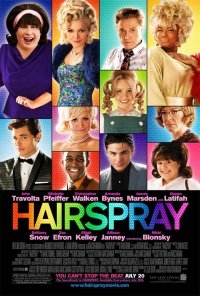
Hairspray is a 2007 musical film produced by Zadan/Meron Productions and distributed by New Line Cinema. It was released in the United States, Canada, and the United Kingdom on July 20, 2007. The film is an adaptation of the Tony Award-winning 2002 Broadway musical of the same name, and a remake of John Waters' 1988 comedy film of the same name. Set in 1962 Baltimore, Maryland, the film follows a "pleasantly plump" teenager named Tracy Turnblad as she simultaneously pursues stardom as a dancer on a local TV show and rallies against racial segregation.
Adapted from both Waters's 1988 script and Thomas Meehan and Mark O'Donnell's book for the stage musical by screenwriter Leslie Dixon, the 2007 film version of Hairspray is directed and choreographed by Adam Shankman. Hairspray stars John Travolta, Michelle Pfeiffer, Christopher Walken, Amanda Bynes, James Marsden, Queen Latifah, Brittany Snow, Zac Efron, Elijah Kelley, Allison Janney, and introduces newcomer Nikki Blonsky as Tracy Turnblad. Hairspray features songs from the Broadway musical written by Marc Shaiman and Scott Wittman, as well as four new Shaiman/Wittman compositions not present in the original Broadway version.
Opening to mostly positive reviews, Hairspray met with financial success, breaking the record for biggest sales at opening weekend for a movie musical, which the film held until July 2008 when it was surpassed by Mamma Mia!. Hairspray went on to become the fourth highest grossing musical film in U.S. cinema history, behind the film adaptations of Grease, Chicago, and Mamma Mia!. Available in a variety of formats, Hairspray's Region 1 home video release took place on November 20, 2007. The USA Network has purchased the broadcast rights to Hairspray and is scheduled to debut the film on cable television in February 2010.
Adam Shankman and John Waters are currently working on a sequel to the film.
Adapted from both Waters's 1988 script and Thomas Meehan and Mark O'Donnell's book for the stage musical by screenwriter Leslie Dixon, the 2007 film version of Hairspray is directed and choreographed by Adam Shankman. Hairspray stars John Travolta, Michelle Pfeiffer, Christopher Walken, Amanda Bynes, James Marsden, Queen Latifah, Brittany Snow, Zac Efron, Elijah Kelley, Allison Janney, and introduces newcomer Nikki Blonsky as Tracy Turnblad. Hairspray features songs from the Broadway musical written by Marc Shaiman and Scott Wittman, as well as four new Shaiman/Wittman compositions not present in the original Broadway version.
Opening to mostly positive reviews, Hairspray met with financial success, breaking the record for biggest sales at opening weekend for a movie musical, which the film held until July 2008 when it was surpassed by Mamma Mia!. Hairspray went on to become the fourth highest grossing musical film in U.S. cinema history, behind the film adaptations of Grease, Chicago, and Mamma Mia!. Available in a variety of formats, Hairspray's Region 1 home video release took place on November 20, 2007. The USA Network has purchased the broadcast rights to Hairspray and is scheduled to debut the film on cable television in February 2010.
Adam Shankman and John Waters are currently working on a sequel to the film.
Rimsky-Korsakov
Nikolai Andreyevich Rimsky-Korsakov (Russian: Никола́й Андре́евич Ри́мский-Ко́рсаков, Nikolaj Andreevič Rimskij-Korsakov, Russian pronunciation: ) (18 March 1844, – 21 June 1908) was a Russian composer, and a member of the group of composers known as The Five. He was a master of orchestration. His best-known orchestral compositions—Capriccio Espagnol, the Russian Easter Festival Overture, and the symphonic suite Scheherazade—are considered staples of the classical music repertoire, along with suites and excerpts from some of his 15 operas. Scheherazade is an example of his frequent use of fairy tale and folk subjects.
Rimsky-Korsakov believed, as did fellow composer Mily Balakirev and critic Vladimir Stasov, in developing a nationalistic style of classical music. This style employed Russian folk song and lore along with exotic harmonic, melodic and rhythmic elements in a practice known as musical orientalism, and eschewed traditional Western compositional methods. However, Rimsky-Korsakov appreciated Western musical techniques after he became a professor of musical composition, harmony and orchestration at the Saint Petersburg Conservatory in 1871. He undertook a rigorous three-year program of self-education and became a master of Western methods, incorporating them alongside the influences of Mikhail Glinka and fellow members of The Five. His techniques of composition and orchestration were further enriched by his exposure to the works of Richard Wagner.
Rimsky-Korsakov believed, as did fellow composer Mily Balakirev and critic Vladimir Stasov, in developing a nationalistic style of classical music. This style employed Russian folk song and lore along with exotic harmonic, melodic and rhythmic elements in a practice known as musical orientalism, and eschewed traditional Western compositional methods. However, Rimsky-Korsakov appreciated Western musical techniques after he became a professor of musical composition, harmony and orchestration at the Saint Petersburg Conservatory in 1871. He undertook a rigorous three-year program of self-education and became a master of Western methods, incorporating them alongside the influences of Mikhail Glinka and fellow members of The Five. His techniques of composition and orchestration were further enriched by his exposure to the works of Richard Wagner.
Jim Hall
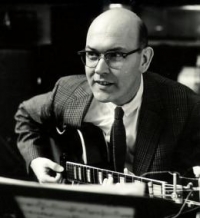
James Stanley Hall (December 4, 1930 – December 10, 2013) was an American jazz guitarist, composer and arrangerBorn in Buffalo, New York, Hall moved with his family to Cleveland, Ohio during his childhood. Hall's mother played the piano, his grandfather violin, and his uncle guitar. He began playing the guitar at the age of 10, when his mother gave him an instrument as a Christmas present. At 13 he heard Charlie Christian play on a Benny Goodman record, which he calls his "spiritual awakening".
Roberta Flack
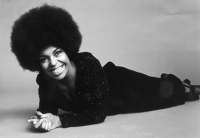
Roberta Cleopatra Flack is an American singer. She is known for her No. 1 singles "The First Time Ever I Saw Your Face", "Killing Me Softly with His Song", "Feel Like Makin' Love"; and "Where Is the Love" and "The Closer I Get to You", two of her many duets with Donny Hathaway.
Sweeney Todd
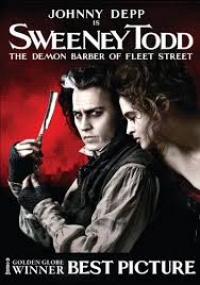
Sweeney Todd: The Demon Barber of Fleet Street (also known simply as Sweeney Todd) is a 2007 musical slasher film directed by Tim Burton and an adaptation of Stephen Sondheim and Hugh Wheeler's Tony Award-winning 1979 musical of the same name.The film retells the Victorian melodramatic tale of Sweeney Todd, an English barber and serial killer who murders his customers with a straight razor and, with the help of his accomplice, Mrs. Lovett, processes their corpses into meat pies. The film stars Johnny Depp as the title character and Helena Bonham Carter as Mrs. Lovett.
Wonder Girls

Wonder Girls (Korean: 원더걸스) was a South Korean girl group formed by JYP Entertainment. The group debuted in February 2007 with the single "Irony" and five members: Yeeun, Sunye, Sunmi, Hyuna and Sohee. After Hyuna's departure in July, Yubin was added into the group prior to the release of their debut studio album, The Wonder Years (2007). The album spawned the hit single "Tell Me", which topped various South Korea's on and offline music charts.
Woody Guthrie
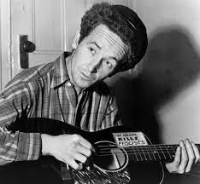
Woodrow Wilson Guthrie (/ˈɡʌθri/; July 14, 1912 – October 3, 1967) was an American singer-songwriter, who is one of the most significant figures in American folk music. His music, including songs such as "This Land Is Your Land", has inspired several generations both politically and musically.Guthrie wrote hundreds of country, folk, and children's songs, along with ballads and improvised works. His album of songs about the Dust Bowl period, Dust Bowl Ballads, was included on Mojo magazine's list of 100 Records That Changed The World, and many of his recorded songs are archived in the Library of Congress.
Rachmaninoff

Sergei Vasilievich Rachmaninoff (1 April 1873 - 28 March 1943) was a Russian composer, pianist, and conductor. He was one of the finest pianists of his day and, as a composer, the last great representative of Russian late Romanticism in classical music. Early influences of Tchaikovsky, Rimsky-Korsakov and other Russian composers gave way to a thoroughly personal idiom which included a pronounced lyricism, expressive breadth, structural ingenuity and a tonal palette of rich, distinctive orchestral colors.
Understandably, the piano figures prominently in Rachmaninoff's compositional output, either as a solo instrument or as part of an ensemble. He made it a point, however, to use his own skills as a performer to explore fully the expressive possibilities of the instrument. Even in his earliest works, he revealed a sure grasp of idiomatic piano writing and a striking gift for melody. In some of his early orchestral pieces he showed the first signs of a talent for tone painting, which he would perfect in The Isle of the Dead, and he began to show a similar penchant for vocal writing in two early sets of songs, Opp. 4 and 8. Rachmaninoff's masterpiece, however, is his choral symphony The Bells, in which all of his talents are fused and unified.
Rachmaninoff sometimes felt threatened by the success of modernists such as Scriabin and Prokofiev and wondered whether to cease composing even before he left Russia. His musical philosophy was rooted in the Russian spiritual tradition, where the role of the artist was to create beauty and to speak the truth from the depths of his heart. In his last major interview, in 1941, he admitted his music, like Russian music, was a product of his temperament. He said, on another occasion, "The new kind of music seems to create not from the heart but from the head. Its composers think rather than feel. They have not the capacity to make their works exalt—they meditate, protest, analyze, reason, calculate and brood, but they do not exalt."
Understandably, the piano figures prominently in Rachmaninoff's compositional output, either as a solo instrument or as part of an ensemble. He made it a point, however, to use his own skills as a performer to explore fully the expressive possibilities of the instrument. Even in his earliest works, he revealed a sure grasp of idiomatic piano writing and a striking gift for melody. In some of his early orchestral pieces he showed the first signs of a talent for tone painting, which he would perfect in The Isle of the Dead, and he began to show a similar penchant for vocal writing in two early sets of songs, Opp. 4 and 8. Rachmaninoff's masterpiece, however, is his choral symphony The Bells, in which all of his talents are fused and unified.
Rachmaninoff sometimes felt threatened by the success of modernists such as Scriabin and Prokofiev and wondered whether to cease composing even before he left Russia. His musical philosophy was rooted in the Russian spiritual tradition, where the role of the artist was to create beauty and to speak the truth from the depths of his heart. In his last major interview, in 1941, he admitted his music, like Russian music, was a product of his temperament. He said, on another occasion, "The new kind of music seems to create not from the heart but from the head. Its composers think rather than feel. They have not the capacity to make their works exalt—they meditate, protest, analyze, reason, calculate and brood, but they do not exalt."
Georges Bizet

Georges Bizet (25 October 1838 – 3 June 1875) was a French composer and pianist of the Romantic era. He is best known for the opera Carmen.
Bizet was born at 26 rue de la Tour d'Auvergne in the 9th arrondissement of Paris in 1838. He was registered with the legal name Alexandre César Léopold Bizet, but he was baptised on 16 March 1840 with the first name Georges, and he was always known thereafter as Georges Bizet. His father Adolphe Armand Bizet (1810-86) was an amateur singer and composer, and his mother, Aimée Léopoldine Joséphine née Delsarte (1814-61), was the sister of the famous singing teacher François Delsarte.
He entered the Paris Conservatory of Music on 9 October 1848, a fortnight before his tenth birthday. His teachers there were Pierre Zimmermann (fugue and counterpoint; often assisted by his son-in-law Charles Gounod), Antoine François Marmontel (piano), François Benoist (organ) and, on Zimmermann's death, Fromental Halévy, whose daughter he himself later married. He won first prizes for organ and fugue in 1855 and completed his earliest compositions.
His first symphony, the Symphony in C, was written in November 1855, when he was seventeen, evidently as a student assignment. It was unknown to the world until 1933, when it was discovered in the archives of the Paris Conservatory library. Upon its first performance in 1935, it was immediately hailed as a junior masterwork and a welcome addition to the early Romantic period repertoire. The symphony bears a stylistic resemblance to the first symphony of Gounod, first played earlier in the same year, and which Bizet had arranged for two pianos although present-day listeners may discern a similarity to music of Franz Schubert, whose work was little known in France at the time the symphony was written.
In 1857, a setting of the one-act operetta Le docteur Miracle won him a share in a prize offered by Jacques Offenbach. He also won the music composition scholarship of the Prix de Rome, the conditions of which required him to study in Rome for three years. There, his talent developed as he wrote such works as the opera buffa Don Procopio (1858-59). There he also composed his only major sacred work, Te Deum (1858), which he submitted to the Prix Rodrigues competition, a contest for Prix de Rome winners only. Bizet failed to win the Prix Rodrigues, and the Te Deum score remained unpublished until 1971. He made two attempts to write another symphony in 1859, but destroyed the manuscripts in December of that year. Apart from this period in Rome, Bizet lived in the Paris area all his life.
Shortly after leaving Rome in July 1860, but while still touring in Italy, he had the idea of writing a symphony in which each of the four movements would be a musical evocation of a different Italian city – Rome, Venice, Florence and Naples. On hearing of his mother's serious illness he cut short his Italian travels and returned to Paris in September 1860; she died a year later. The Scherzo of the symphony was completed by November 1861, but it was not until 1866 that the first version of the whole symphony was written. He subjected it to a number of revisions through to 1871, but died before ever producing what he considered the definitive version. For this reason, the work is sometimes described as "unfinished", but this is an inaccurate description as it was fully scored. It was published in 1880 as the Roma Symphony.
Bizet was born at 26 rue de la Tour d'Auvergne in the 9th arrondissement of Paris in 1838. He was registered with the legal name Alexandre César Léopold Bizet, but he was baptised on 16 March 1840 with the first name Georges, and he was always known thereafter as Georges Bizet. His father Adolphe Armand Bizet (1810-86) was an amateur singer and composer, and his mother, Aimée Léopoldine Joséphine née Delsarte (1814-61), was the sister of the famous singing teacher François Delsarte.
He entered the Paris Conservatory of Music on 9 October 1848, a fortnight before his tenth birthday. His teachers there were Pierre Zimmermann (fugue and counterpoint; often assisted by his son-in-law Charles Gounod), Antoine François Marmontel (piano), François Benoist (organ) and, on Zimmermann's death, Fromental Halévy, whose daughter he himself later married. He won first prizes for organ and fugue in 1855 and completed his earliest compositions.
His first symphony, the Symphony in C, was written in November 1855, when he was seventeen, evidently as a student assignment. It was unknown to the world until 1933, when it was discovered in the archives of the Paris Conservatory library. Upon its first performance in 1935, it was immediately hailed as a junior masterwork and a welcome addition to the early Romantic period repertoire. The symphony bears a stylistic resemblance to the first symphony of Gounod, first played earlier in the same year, and which Bizet had arranged for two pianos although present-day listeners may discern a similarity to music of Franz Schubert, whose work was little known in France at the time the symphony was written.
In 1857, a setting of the one-act operetta Le docteur Miracle won him a share in a prize offered by Jacques Offenbach. He also won the music composition scholarship of the Prix de Rome, the conditions of which required him to study in Rome for three years. There, his talent developed as he wrote such works as the opera buffa Don Procopio (1858-59). There he also composed his only major sacred work, Te Deum (1858), which he submitted to the Prix Rodrigues competition, a contest for Prix de Rome winners only. Bizet failed to win the Prix Rodrigues, and the Te Deum score remained unpublished until 1971. He made two attempts to write another symphony in 1859, but destroyed the manuscripts in December of that year. Apart from this period in Rome, Bizet lived in the Paris area all his life.
Shortly after leaving Rome in July 1860, but while still touring in Italy, he had the idea of writing a symphony in which each of the four movements would be a musical evocation of a different Italian city – Rome, Venice, Florence and Naples. On hearing of his mother's serious illness he cut short his Italian travels and returned to Paris in September 1860; she died a year later. The Scherzo of the symphony was completed by November 1861, but it was not until 1866 that the first version of the whole symphony was written. He subjected it to a number of revisions through to 1871, but died before ever producing what he considered the definitive version. For this reason, the work is sometimes described as "unfinished", but this is an inaccurate description as it was fully scored. It was published in 1880 as the Roma Symphony.
Yoshiki Hayashi
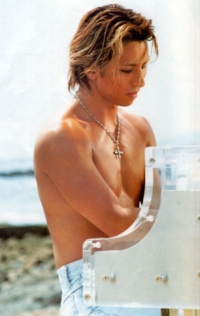
Yoshiki Hayashi (born November 20, 1965, in Tateyama, Japan) is a musician, songwriter and producer. Throughout his professional career usually referred to by his given name only, he is primarily known for co-founding the popular rock band X Japan, for which he plays drums and piano, along with writing most of the music. He is currently involved with the supergroup S.K.I.N..
Yoshiki formed X Japan with vocalist Toshimitsu "Toshi" Deyama in 1982. Four years later, he founded his own independent label, Extasy Records, in order to issue the band's music. Their breakthrough came in 1989 with the release of the Blue Blood album. After three more albums and several tours, the group broke up in 1997 but releases of arranged material and reissues continue until today.
After X Japan disbanded, his next major endeavor was expected to become Violet UK, but the release of a debut album has since been postponed repeatedly. Beside a symphonic concert performed in 2002 and released on DVD in 2005 (which contained arrangements of old X Japan songs along with music supposedly created for Violet UK), no major publication of the project has yet surfaced.
In 2007, X Japan reunited. On October 22, 2007 they appeared together for the first time in over 10 years at a public filming of the promotion video for their new single "I.V." which was created for the movie Saw IV.
Yoshiki formed X Japan with vocalist Toshimitsu "Toshi" Deyama in 1982. Four years later, he founded his own independent label, Extasy Records, in order to issue the band's music. Their breakthrough came in 1989 with the release of the Blue Blood album. After three more albums and several tours, the group broke up in 1997 but releases of arranged material and reissues continue until today.
After X Japan disbanded, his next major endeavor was expected to become Violet UK, but the release of a debut album has since been postponed repeatedly. Beside a symphonic concert performed in 2002 and released on DVD in 2005 (which contained arrangements of old X Japan songs along with music supposedly created for Violet UK), no major publication of the project has yet surfaced.
In 2007, X Japan reunited. On October 22, 2007 they appeared together for the first time in over 10 years at a public filming of the promotion video for their new single "I.V." which was created for the movie Saw IV.
Star Wars
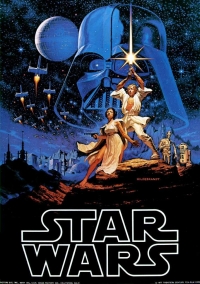
Star Wars is an epic space opera franchise initially conceived by George Lucas during the 1970s and significantly expanded since that time. The events depicted in Star Wars media take place in a fictional galaxy. Many species of alien creatures (often humanoid) are depicted. Robotic droids are also commonplace and are generally built to serve their owners. Space travel is common, and many planets in the galaxy are members of a Galactic Republic, later reorganized as the Galactic Empire.
One of the prominent elements of Star Wars is the "Force", which is an omnipresent form of energy which can be harnessed by those with that ability. It is described in the first produced film as "an energy field created by all living things binds the galaxy together." The Force allows users to perform a variety of supernatural feats (such as telekinesis, clairvoyance, precognition, and mind control) and also can amplify certain physical traits, such as speed and reflexes; these abilities can vary from user to user and can be improved through training. While the Force can be used for good, it has a dark side that, when pursued, imbues users with hatred, aggression, and malevolence. The six films feature the Jedi, who use the Force for good, and the Sith, who use the dark side for evil in an attempt to take over the galaxy. In the Expanded Universe many dark side users are Dark Jedi rather than Sith, mainly because of the Rule of Two.
One of the prominent elements of Star Wars is the "Force", which is an omnipresent form of energy which can be harnessed by those with that ability. It is described in the first produced film as "an energy field created by all living things binds the galaxy together." The Force allows users to perform a variety of supernatural feats (such as telekinesis, clairvoyance, precognition, and mind control) and also can amplify certain physical traits, such as speed and reflexes; these abilities can vary from user to user and can be improved through training. While the Force can be used for good, it has a dark side that, when pursued, imbues users with hatred, aggression, and malevolence. The six films feature the Jedi, who use the Force for good, and the Sith, who use the dark side for evil in an attempt to take over the galaxy. In the Expanded Universe many dark side users are Dark Jedi rather than Sith, mainly because of the Rule of Two.
Jean Baptiste Accolay
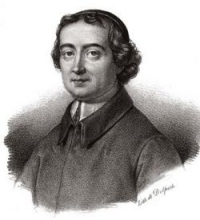
Jean-Baptiste Accolay (17 April 1833 – 19 August 1900) was a Belgian violin teacher, violinist, conductor, and composer of the romantic period. His best-known composition is his one-movement student concerto in A minor. It was written in 1868, originally for violin and orchestra.
Juri Takahashi

Juri Takahashi, also known mononymously as Juri, is a Japanese singer based in South Korea. She is a member of South Korean girl group Rocket Punch and former member of the Japanese girl group AKB48.
Bach

Johann Sebastian Bach (31 March 1685 – 28 July 1750) was a German composer and organist whose sacred and secular works for choir, orchestra, and solo instruments drew together the strands of the Baroque period and brought it to its ultimate maturity. Although he introduced no new forms, he enriched the prevailing German style with a robust contrapuntal technique, an unrivalled control of harmonic and motivic organisation in composition for diverse musical forces, and the adaptation of rhythms and textures from abroad, particularly Italy and France.
Revered for their intellectual depth and technical and artistic beauty, Bach's works include the Brandenburg concertos; the Goldberg Variations; the English Suites, French Suites, Partitas, and Well-Tempered Clavier; the Mass in B Minor; the St. Matthew Passion; the St. John Passion; The Musical Offering; The Art of Fugue; the Sonatas and Partitas for violin solo; the Cello Suites; more than 200 surviving cantatas; and a similar number of organ works, including the celebrated Toccata and Fugue in D Minor.
While Bach's fame as an organist was great during his lifetime, he was not particularly well-known as a composer. His adherence to Baroque forms and contrapuntal style was considered "old-fashioned" by his contemporaries, especially late in his career when the musical fashion tended towards Rococo and later Classical styles. A revival of interest and performances of his music began early in the 19th century, and he is now widely considered to be one of the greatest composers in the Western tradition.
Revered for their intellectual depth and technical and artistic beauty, Bach's works include the Brandenburg concertos; the Goldberg Variations; the English Suites, French Suites, Partitas, and Well-Tempered Clavier; the Mass in B Minor; the St. Matthew Passion; the St. John Passion; The Musical Offering; The Art of Fugue; the Sonatas and Partitas for violin solo; the Cello Suites; more than 200 surviving cantatas; and a similar number of organ works, including the celebrated Toccata and Fugue in D Minor.
While Bach's fame as an organist was great during his lifetime, he was not particularly well-known as a composer. His adherence to Baroque forms and contrapuntal style was considered "old-fashioned" by his contemporaries, especially late in his career when the musical fashion tended towards Rococo and later Classical styles. A revival of interest and performances of his music began early in the 19th century, and he is now widely considered to be one of the greatest composers in the Western tradition.
Enya
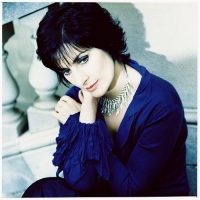
Enya (born Eithne Patricia Nà Bhraonáinon May 17, 1961, Gaoth Dobhair, County Donegal, Ireland), sometimes presented in the media as Enya Brennan, is an Irish singer, instrumentalist and composer. She is Ireland's best-selling solo artist and is officially the country's second biggest musical export (after U2). Her works have earned her four Grammy Awards and an Academy Award nomination, and she is also famous for performing in 10 different languages during her lengthy career. Enya is an approximate transcription of how Eithne is pronounced in her native Irish, in the Donegal dialect.
Joseph Haydn

Franz Joseph Haydn (31 March 1732 – 31 May 1809), known as Joseph Haydn (German pronunciation: ; English: /ˈdʒoʊzəf ˈhaɪdən/), was an Austrian composer, one of the most prolific and prominent composers of the Classical period. He is often called the "Father of the Symphony" and "Father of the String Quartet" because of his important contributions to these genres. He was also instrumental in the development of the piano trio and in the evolution of sonata form.
A life-long resident of Austria, Haydn spent much of his career as a court musician for the wealthy Hungarian aristocratic Esterházy family on their remote estate. Isolated from other composers and trends in music until the later part of his long life, he was, as he put it, "forced to become original". At the time of his death, he was one of the most celebrated composers in Europe.
Joseph Haydn was the brother of Michael Haydn, himself a highly regarded composer, and Johann Evangelist Haydn, a tenor. He was also a close friend of Wolfgang Amadeus Mozart and a teacher of Ludwig van Beethoven.
A life-long resident of Austria, Haydn spent much of his career as a court musician for the wealthy Hungarian aristocratic Esterházy family on their remote estate. Isolated from other composers and trends in music until the later part of his long life, he was, as he put it, "forced to become original". At the time of his death, he was one of the most celebrated composers in Europe.
Joseph Haydn was the brother of Michael Haydn, himself a highly regarded composer, and Johann Evangelist Haydn, a tenor. He was also a close friend of Wolfgang Amadeus Mozart and a teacher of Ludwig van Beethoven.
The Manhattan Transfer

The Manhattan Transfer is a Grammy award-winning jazz vocal group founded in 1969 that has explored a cappella, vocalese, swing, standards, Brazilian jazz, rhythm and blues, and pop music.There have been two editions of the Manhattan Transfer, with Tim Hauser the only person to be part of both. The first group consisted of Hauser, Erin Dickins, Marty Nelson, Pat Rosalia, and Gene Pistilli. The second version of the group, formed in 1972, consisted of Hauser, Alan Paul, Janis Siegel, and Laurel Massé. In 1979, Massé left the group after being badly injured in a car accident and was replaced by Cheryl Bentyne. The group's long-time pianist, Yaron Gershovsky, accompanied the group on tour and served as music director.
 Sheet Music Max is a site for those who wants to access popular sheet music easily,
letting them download the sheet music for free for trial purposes.
It's completely free to download and try the listed sheet music, but you have to delete the files after 24 hours of trial.
Don't forget, if you like the piece of music you have just learned playing,
treat the artist with respect, and go buy the original sheet music.
Sheet Music Max is a site for those who wants to access popular sheet music easily,
letting them download the sheet music for free for trial purposes.
It's completely free to download and try the listed sheet music, but you have to delete the files after 24 hours of trial.
Don't forget, if you like the piece of music you have just learned playing,
treat the artist with respect, and go buy the original sheet music.
